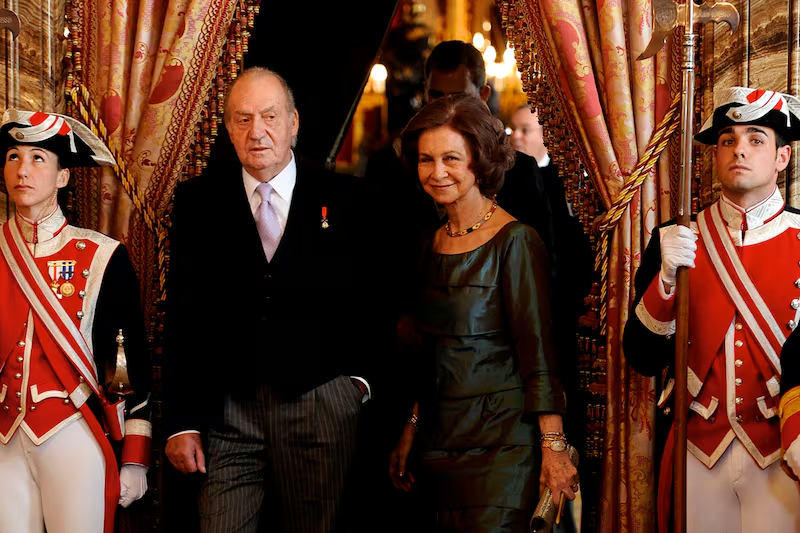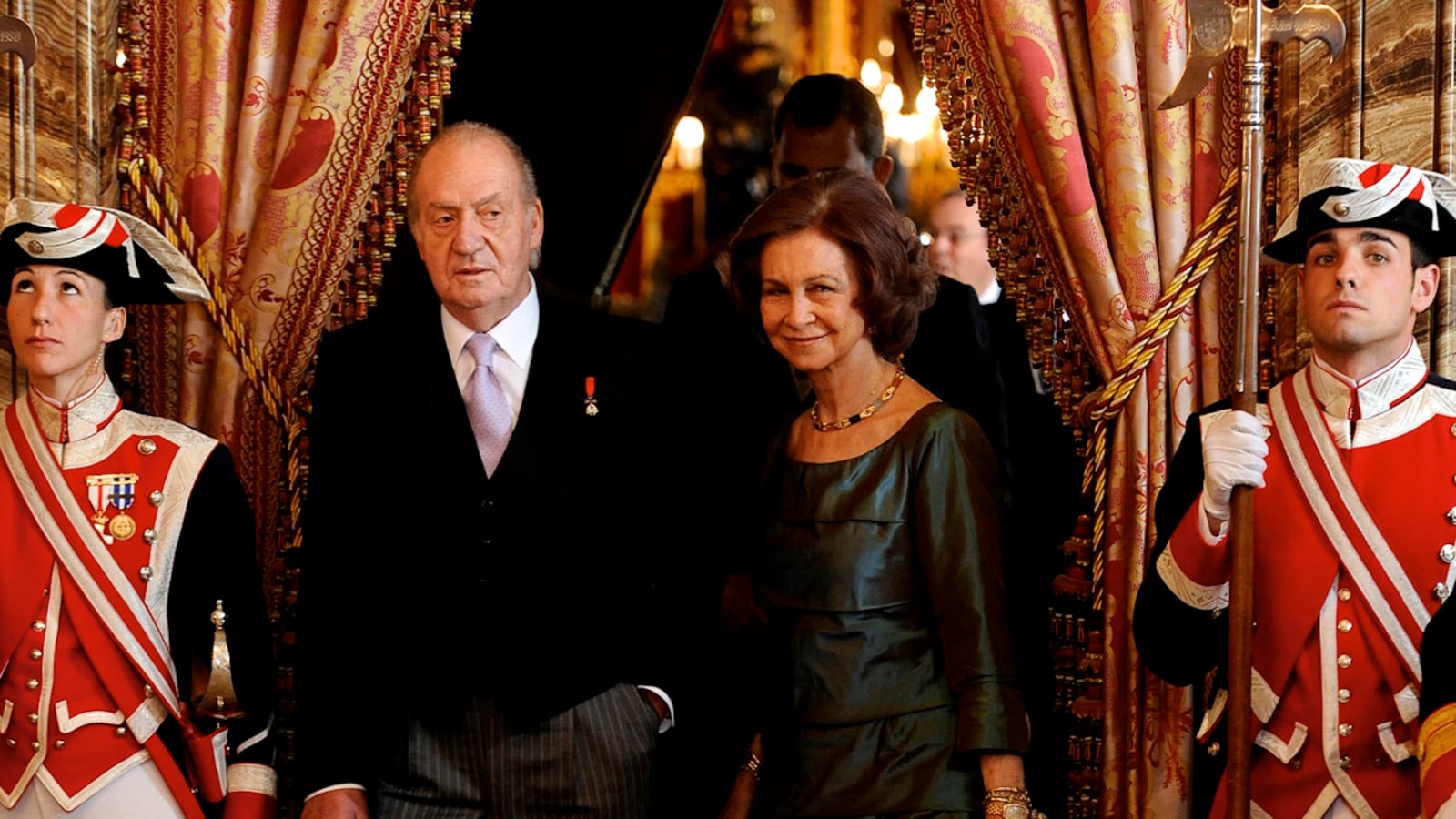It’s not good to be king—at least not right now in Spain.
King Juan Carlos and his family, who until now have been adept at avoiding the kinds of scandals that seem to plague other European royal families, have recently frequented courtrooms, hospitals, and the front pages. As a result, Spaniards, who in the past embraced the low-key monarchy, are starting to tire of the royals’ antics—especially as the country deals with a serious economic recession and crippling unemployment.
The latest outrage was sparked this weekend when the 74-year-old monarch underwent hip-replacement surgery after a fall during an elephant hunting trip in Botswana. While details of the hunt are slowly emerging, Spanish newspapers have published photos of the King's past trips to the African country, found on the website of hunting outfit Rann Safaris.
In one, the King sports a hunting vest and rifle, and kneels next to his guide and two dead buffalo. In another, they stand in front of a dead elephant, propped against a tree. According to a cached document on the safari company’s website—it removed the active site the day the story broke—Rann charges $59,500 for a two-week elephant safari and $29,120 for a 10-day buffalo hunt. The King is the first name listed under the heading “30 Years of Friends and Sportsmen.”
Although hunting elephants with a permit is legal in Botswana, Spaniards on television and in online forums objected to the King felling protected animals. (The International Union for Conservation of Nature lists the African elephant as “vulnerable,” one step up from “endangered.”) Many were shocked that the king, who is not legally bound to disclose his private expenditures, was hunting exotic game while the Spanish government had recently announced $48 billion in spending cuts.

Ironically, Juan Carlos is the honorary president of the Spanish division of the conservation group World Wildlife Fund. Since Saturday, an online petition asking for his removal from the organization has received more than 38,000 signatures.
“I’ve always supported the King for what he did for Spain during the transition [to democracy], but I think it’s obscene that he was hunting elephants,” said Madrid resident Angeles Aragón, 54.
It is common to hear Spaniards say they are not pro-monarchy, but pro-Juan Carlos. He was dictator Francisco Franco’s handpicked successor, but after Franco’s death in 1975, Juan Carlos relinquished absolute power and steered the country toward a parliamentary monarchy. His defining moment occurred on February 23, 1981, when he helped defuse a military-coup attempt at the parliament building in Madrid.
For this reason, citizens and the press tend to avoid criticizing the Spanish royals. Maintaining the Spanish royal family costs around $11 million per year, compared to the $50 million spent on the British and Dutch monarchies. Last week, the Spanish royals said they would reduce their budget by $222,000 to coincide with the nationwide budget cuts.
But sentiments are changing, and it’s unclear whether Spaniards will be as kind to Prince Felipe when it’s his turn to reign. According to a poll taken in December by Metroscopia, the gap between those pro-monarchy and pro-republic is narrowing. In 1996, 66 percent preferred a monarchy compared to 13 percent who opted for a republic. In late 2011, the numbers were 49 percent and 37 percent, respectively.
While the governing Popular Party (PP) and the Socialist party refused to comment on the King’s trip, United Left party leader Cayo Lara said the monarch’s actions were disrespectful to those suffering from Spain’s anemic economy. The jobless rate is around 23 percent, with youth unemployment nearing 50 percent.
Of Juan Carlos’s last Christmas Eve speech, Lara said that “he can’t say that he’s losing sleep over the thousands of young unemployed people and then go off to Africa to kill elephants.”
Public support for the royals’ began to decline last fall, when Spanish authorities accused the King’s son-in-law, Iñaki Urdangarin, of masterminding a scheme that diverted more than $8 million from public coffers into private accounts. The royal family has since marginalized Urdangarin, who pleaded innocent in court in February.
And to top off the royal woes, just last week the King’s eldest grandson, 13-year-old Froilán, was rushed to the hospital after shooting himself in the foot during target practice at his father’s estate. Spanish police have opened an investigation because 14 is the legal age to use firearms.
The incident recalled another, far more serious, shooting accident in 1956, when Juan Carlos was 18 and living in exile with his family in Portugal. While the facts are not entirely clear, historians claim that Juan Carlos was cleaning a revolver accidently fired, killing his 14-year-old brother, Alfonso.






